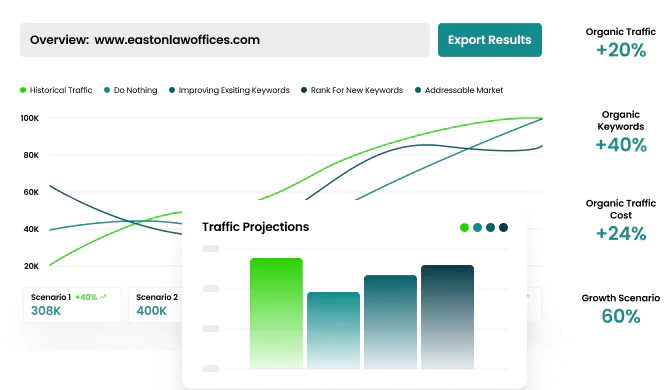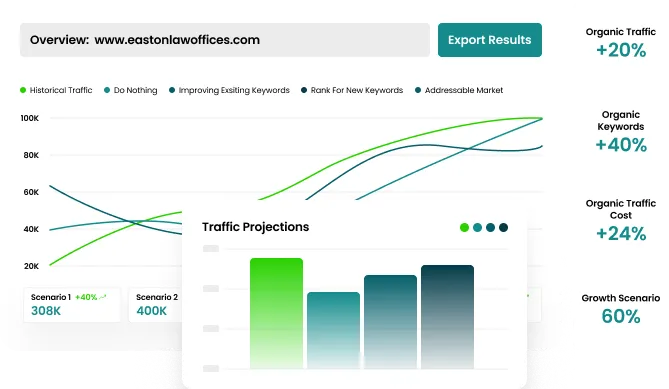Six Dos and Don’ts of Legal Blogging

Before most people ever seek in-person legal assistance, they perform a search for legal information online. In short, your prospective clients have questions, and your competition is likely providing a legal resource in the form of their own legal blogs. To remain competitive in this age of digital marketing, you’ll need to do the same.
Beginning a legal blog can help establish your law firm as a voice of authority in your practice area, building client trust as well as Google’s. A legal blog can help boost your search engine rankings for competitive keywords when combined with a solid SEO strategy. The result? More potential clients accessing your website for the critical information they need to pursue legal support from your firm.
Dos and Don’ts of Legal Blogging
As an attorney, you are responsible for providing quality content that adheres to ethical standards other web owners and bloggers do not. With high-quality content and ethical considerations in mind, we’ve developed a list of dos and don’ts for legal blogging:
- Do: Form a Unique Voice For Your Firm
There are, seemingly, endless sources of legal information available on the web, both from your competition and dedicated legal advice websites. To stand out from the crowd and continue to attract the clientele you established your firm to help, you’ll need to develop a voice that suits your firm.
Your primary resources in this endeavor should be your own marketing tactics and website—have you previously marketed your firm as a modern firm that focuses on building client trust? Perhaps you’re a long-established firm that desires to remain formal and polished? This same voice should apply to your legal blog.
- Don’t: Overuse Legal Jargon
Even if your firm is conservative, professional, and polished, and you strive to maintain the same voice within your blog, it’s important to avoid overusing legal terms and jargon. Most attorneys become accustomed to writing for other attorneys, judges, and other field experts. However, in most cases, the potential clients reading your blog do not have the same experience.
Writing your blogs as you would a law school paper would be a solid tactic if you were blogging for other attorneys. However, with your clientele, it will not only fail to communicate your point to your readers but will likely send them off in search of similar content that is more engaging. Consider the most important keywords an attorney in your field should target, then explain in a way your readers can understand.
- Do: Consider Your Audience
Instead of filling your blog posts with legal terms and definitions, consider who is reading them. Most professional bloggers recommend writing for an eighth-grade reading level—the American internet user’s average reading level. At this level, the average Joe and the college graduate alike can access and benefit from your content.
At the same time, always ensure your writing has a professional tone. Even if your firm is less formal than most, readers want legal information to come from a reliable, trustworthy source with experience in the field. Combining professionalism with engaging material at the proper reading level will give you the best possible visibility with your audience.
Don’t: Focus On Sales
Of course, a major purpose behind your blog is to help garner your firm more attention, more clicks—and, ultimately, more clients. On the other hand, your clients are seeking help with a legal issue that is important to them. If you focus your blog content on promotional gimmicks and constant plugs for your firm, potential clients may not be able to look past your success to see how you can help them.
Do your best to balance posts and statements regarding your success with helpful, engaging content developed for your audience. You can ensure your firm appears up to date and successful by addressing current events, relevant legal topics, and more. If your clients feel you are actively posting helpful content to aid them, they will be more likely to seek your firm’s services.
- Do: Answer Legal Questions
Potential clients will often find your page while researching a specific legal question currently affecting them. Depending on your firm’s areas of focus, the types of legal questions you’ll want to target can differ—if you focus on divorce law, structure your blog around the division of property, child custody, and the like. If you focus on personal injury, aim to give readers information about dog bite laws in your state, a definition of the term “negligence,” and similar topics.
Answering potential clients’ general legal questions can help reassure them that they would benefit from utilizing your services. You can also address many of the most common questions before the client even enters your office. In general, if it is a topic or question that does not change from one client to the next, you’re likely providing a useful service and saving time in the process.
- Don’t: Offer Specific Legal Advice
While the opportunity to offer legal information, boost your search engine rankings for crucial keywords, and target potential clients are the primary reasons you’re beginning a blog, you have an ethical responsibility to avoid offering legal advice to your readers. Not only is a blog a generally improper setting to offer official legal advice, but your readers could potentially take any formal advice you offer and apply it to their completely unrelated situation—with a bad result.
Always offer legal information in a way that assures clients the statements contained within are general. Provide background information, state the generally accepted path to move forward, then direct readers to contact your firm for information specific to their unique cases. Including this disclaimer and call to action prominently not only ensures that your clients are aware that the provided information is general, but encourages them to make a conversion and reach out to your firm.
Trust the Professionals
If the thought of beginning a legal blog seems daunting—especially with the responsibilities that you already carry while operating your firm—turn to a team of professional digital marketers. RizeUp’s slate of digital marketing services includes quality content marketing for legal firms, backed by professional writers well versed in the dos and don’ts of legal writing. If you’d like more information regarding how to develop your legal blog, reach out to RizeUp Media today.
Our Latest Blog Posts
Law Firm Marketing: A Comprehensive Strategy Guide for Lawyers
How an Effective Marketing Strategy Can Help Your Law Firm Grow In…
Artificial Intelligence for Lawyers – 9 Ways AI Can Boost Law Firm [...]
As an attorney competing in the modern marketplace, you need to be…
Personal Injury Lawyer SEO – The Ultimate Guide to Drive More Traffic [...]
In the fiercely competitive landscape of legal services, standing out with a…
Testimonials
Here's What Our Clients Are Saying




Travis and his team are responsive, creative, and attentive. They are attuned to the specific needs of my business. Highly recommend them!
Dorie Rogers


We have been using large nation-wide firms for marketing. And as usual, initial good service that tails off and gets worse. When Bo decided to open his own firm, I trusted that his attention to detail and personal service would be great, and I was right. RizeUp has…
Juan Armenta


RizeUp Media has taken an active, turnkey approach to our digital marketing. They provide a strategic, integrated and cost-effective marketing plan that is tailored to our short- and long-term revenue growth objectives. I have worked with Bo Bryant & Travis Hoechlin for several years now and their expertise,…
Jason Martinez


RizeUp Media delivers! I have used other marketing services, but none compare to the outstanding results RizeUp delivers. The company is professional, friendly, helpful and deliver where other marketing services fall short. Highly recommended!!
Michelanne Hrubic


RizeUp has been terrific. Their team of truly experienced experts and professionals worked very hard to put our business first.
Andrew Chivinski


We have tried three different web development companies and RizeUp is really the strategic partner we were looking for. They went beyond just putting up a website. They focused on what made our firm different and our goals regarding which clients to reach. I truly feel that we…
Drummond McCunn


I have used them for several months, after switching from Findlaw. They rock.
Raymond Hane


I recently started working with RizeUp Media for my law firm’s website and SEO work. I am so impressed with this company and highly recommend them.
Bill Cumming


We switched to RizeUp early in the year, and the new web site launched 3 months ago. We've already seen a solid uptake in calls from the web site, and a higher number of potential clients. Very solid work, and the people are friendly, responsive, professional, and great…
Matt Bangerter


We switched providers to RizeUp Media a few months ago. I was tired of having to worry about our website and the SEO work that is required to keep up with all the changes in Google Search. My prior provider was not responsive and barely did anything. RizeUp…






